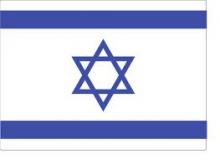Module 7: Israel in Our Lives
I. Opening Activity
In the first session of this sequence, we began by asking the question: what does America mean to you? And, what does Israel mean to you? Let’s revisit that question now. Using Handout 7a, explore what resonates with you when you think of America and Israel. What challenges you about each? What inspires you about each? Share with a partner and then we’ll share with the group.
II. Representing Israel in Our Lives: Arts and Crafts
Invite participants to develop this initial idea by creating a poster that portrays some of the words that come to mind when they think of Israel. At this point, they should be able to go beyond simple symbols (flag, Knesset, IDF) and reflect some of the more complex and subtle issues we’ve addressed in these modules. When participants are finished, have them hang their montages and explain them to the rest of the group. They also can be displayed in a public place and participants might be invited to explain their work to others.
Technology-oriented alternative: Invite participants to make a 60-second video instead of a poster. In addition to screening the videos for the group, and engaging in a discussion about them, each creator can share their work with friends on social media and tag at least three friends.
Concluding Words
Ask participants to sit in a circle and share what they have learned, both intellectually and personally, from these modules. Has their sense of how Israel is part of their lives changed or developed from when we started? (Refer back to their original list of words from Day 1 and the list they created at the beginning of this session).
Conclude by reading this quote from Elie Wiesel and then follow with a reflective discussion:
"How can it be explained that a Jew like myself, attached to the destiny of Israel with all the fiber of his being, has chosen to write, teach, work, found a family, and to live far away in a social and cultural environment that is far too generalized for that of our ancestors? Israelis put this question to me, as they do other Jews in the Diaspora... Is there a satisfactory response? If there is, I don’t know it... For the moment, this is all I can say: As a Jew, I need Israel. More precisely: I can live as a Jew outside Israel but not without Israel."


